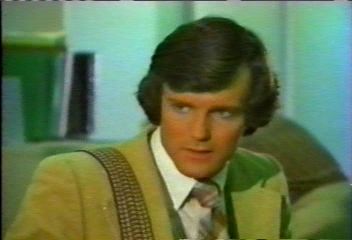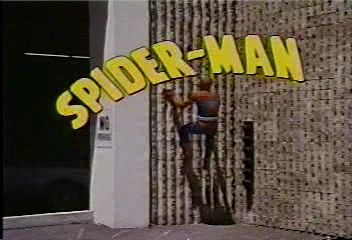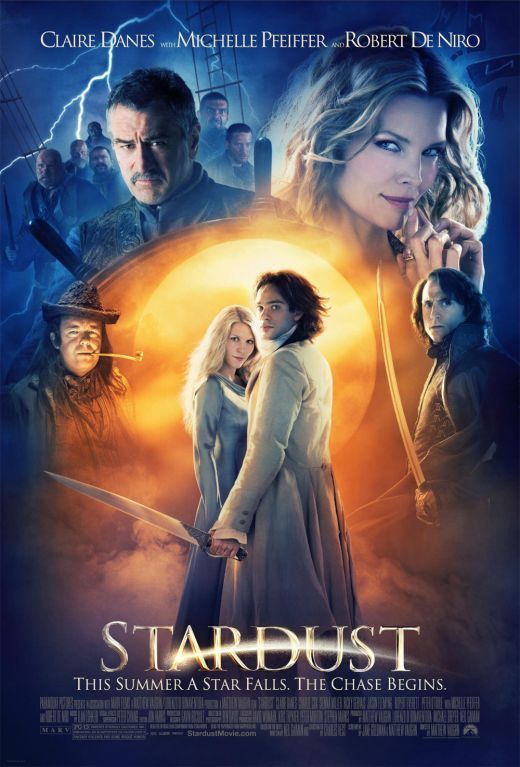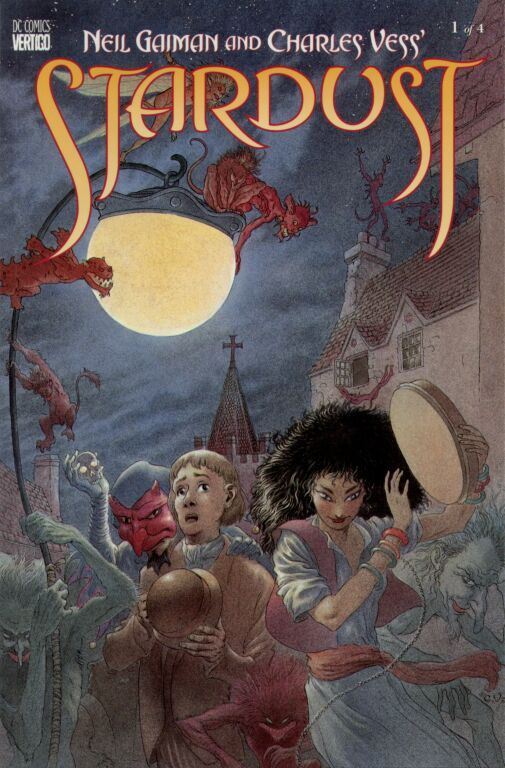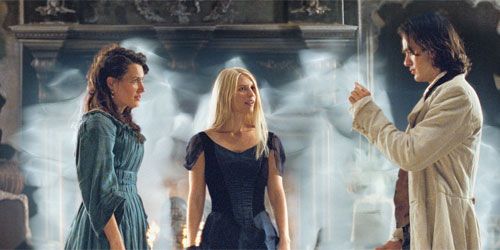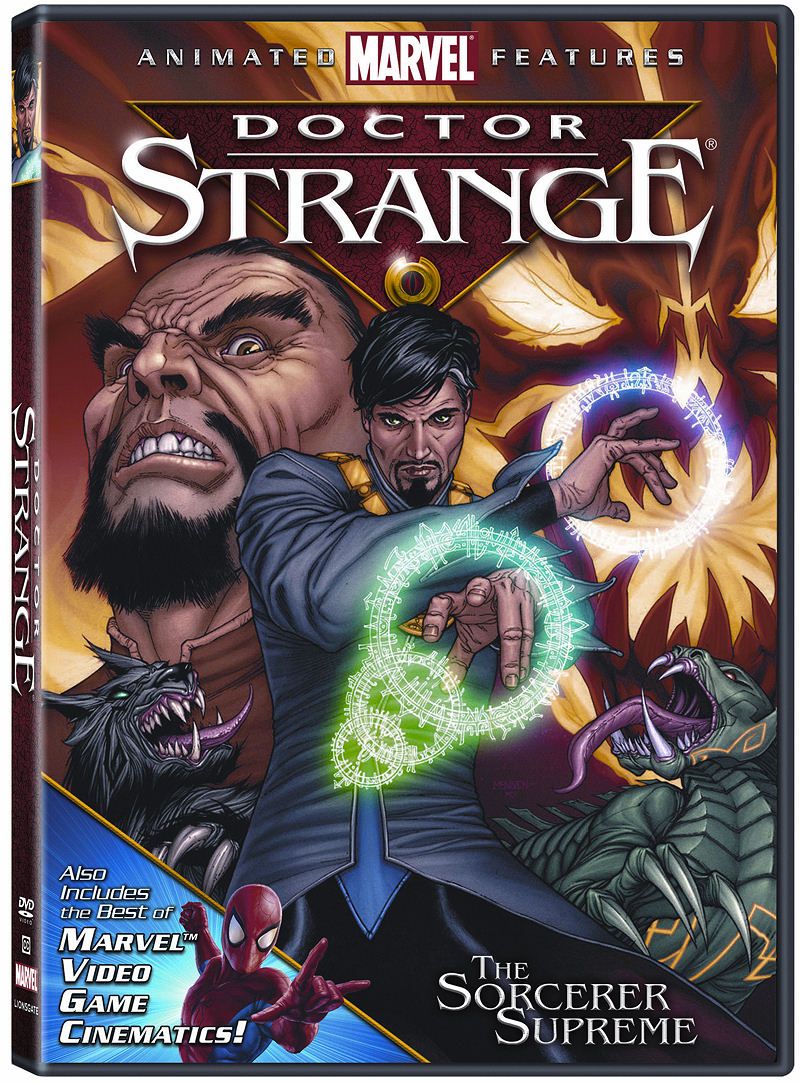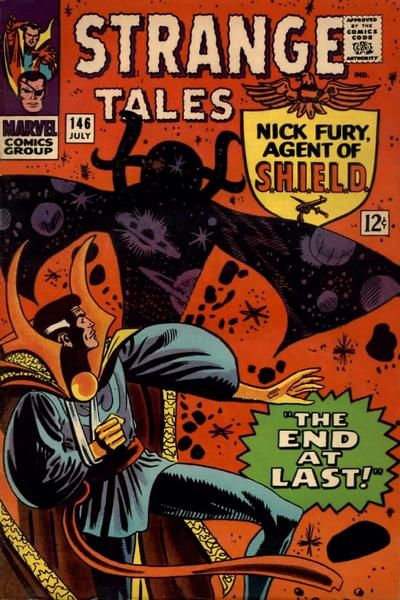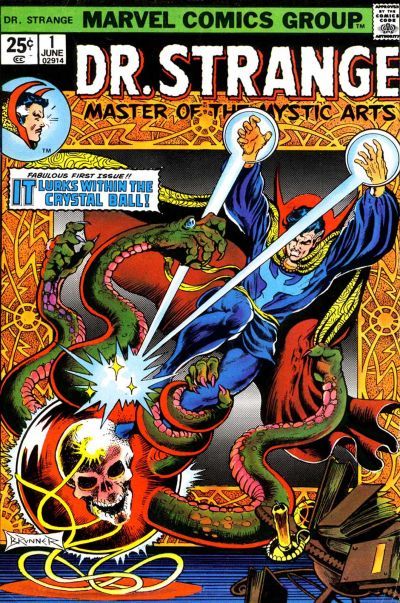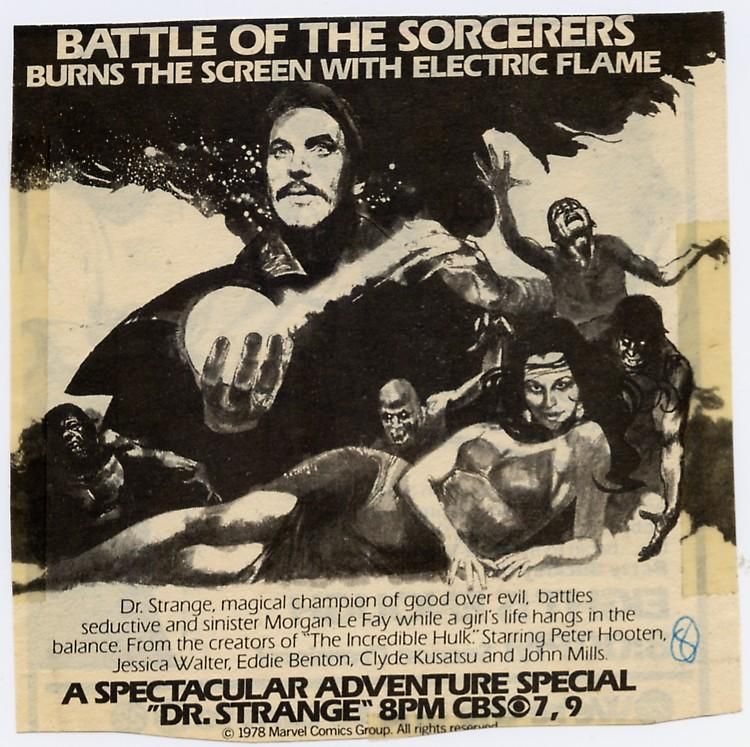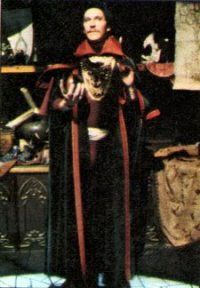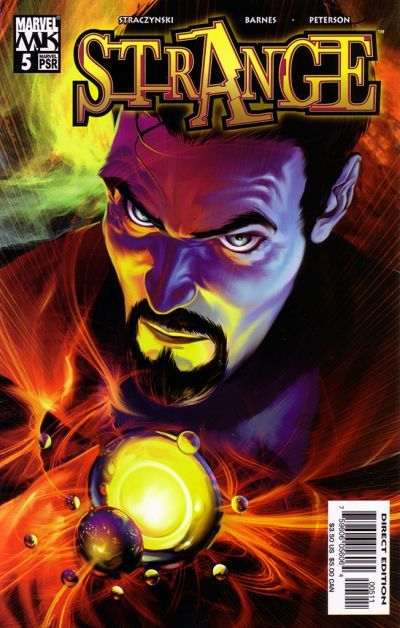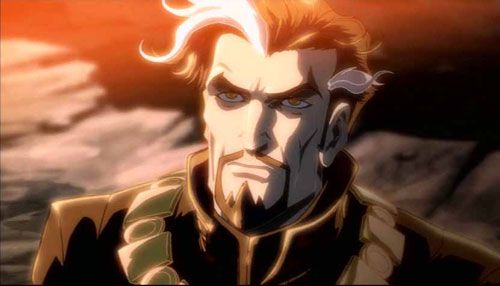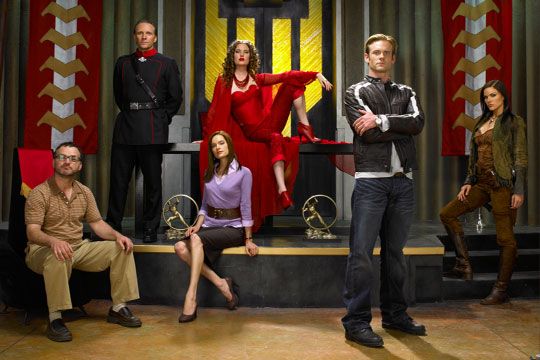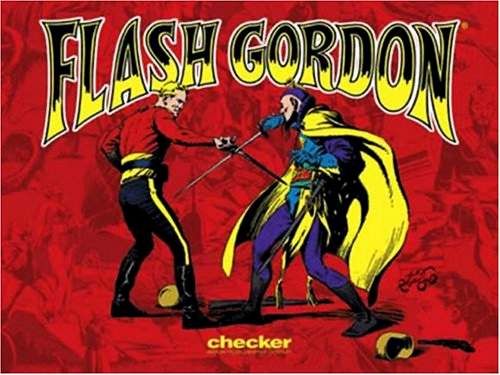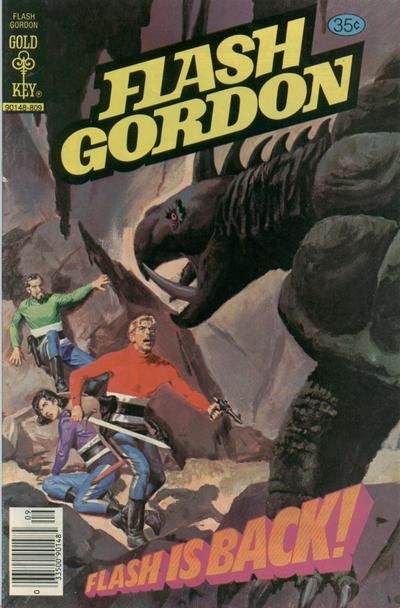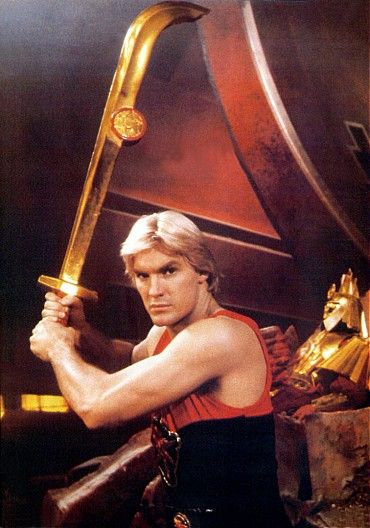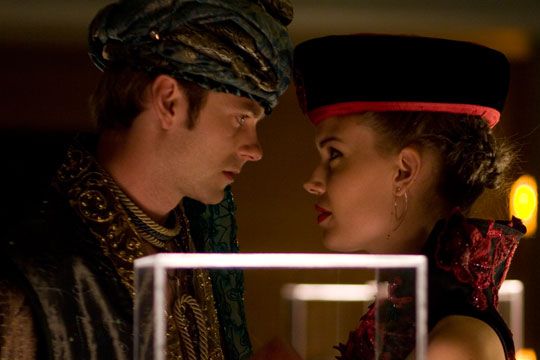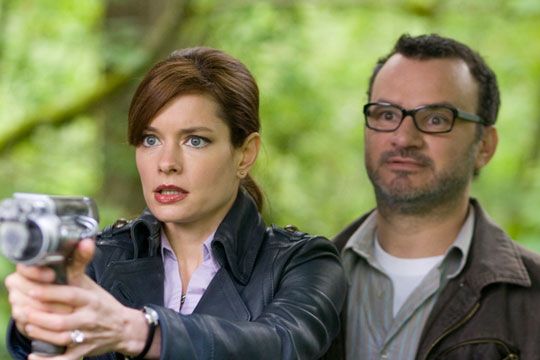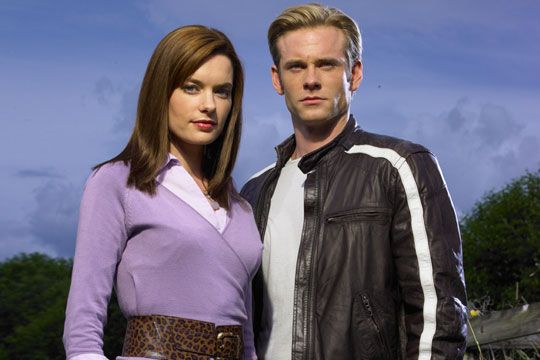Ever since I started this weekly column gig, there's one home truth I keep colliding with, over and over again. It keeps coming up in new and different ways, but the conclusion is inescapable.
That basic truth is: I am living in that golden geek paradise I dreamed of when I was a teenager.
This is why, when I was the CBR TV/Film Forum administrator, I never had a moment's patience for the malcontents who would rage on for page after page about the travesty!! of a Spider-Man film that gave Peter organic webshooters!!... or whatever. For God's sake. Some of us remember Nicholas Hammond.
So my response to this kind of fan whining was mostly a bewildered, Organic webshooters? THAT'S your big deal-breaker? What the hell is wrong with you? Fans of my generation were thrilled to get a Peter that at least was the right age in the first Spider-Man movie, a Peter who was a nerdy loser kid that learned about power and responsibility from the tragic death of his Uncle Ben. I really do think the modern comics audience is spoiled rotten when it comes to television and film adaptations. To pitch a fit about missing some arcane detail when the current Hollywood crop is getting so much right is really missing the forest for a group of pretty scrawny trees.
Which is not to say that we should just be blindly grateful for everything. That's not my point at all. I guess where I'm going with this is... be aware of the requirements involved in adapting one medium to another. Ask yourself if whatever changes are made involve a key component of the story, or is it a cosmetic choice only? Is the essence still there?
Just this last week I encountered three examples of comics-to-film and they ran the full range. One was a joy. The second was okay, but I think some mistakes were made. The third was a train wreck that managed to miss the entire point of what was supposed to be fun about the comic in the first place. What struck me about it, though, is that all three made fairly serious changes in the basic story from their respective original texts. It was almost a classroom set of adaptation examples: doing it right, doing it passably well, and and doing it completely wrong.
The one that was so right, so well-done it left Julie and I both grinning like idiots from start to finish, was Stardust.
Now, you have to understand, we were a tough audience for this one. Both my wife and I are huge fans of the original Stardust book. I gave it to Julie for her birthday when we were first dating, because I knew that she would love it, and she did.
So this was a movie that we were anticipating with that mix of frenzied excitement and horror that you always get when they make a movie out of something that you really, really love. We were cautiously optimistic -- "Gaiman's involved, he didn't write the screenplay, but he has input..." You know how fans talk, constantly speculating about this or that production news bite and wondering what it means. This was how we were for Stardust. Excited and happy, fearful and agitated, wanting it to be great and terrified it would be awful.
And... we were blown away.
There were changes, yes, but they were good changes. They made thematic sense. And in one case -- extensive changes to the original ending -- it may well have saved the movie from being a box-office bomb.
Neil Gaiman's been very straightforward in interviews about how the original ending of Stardust, the book, would have been horridly anti-climactic for Stardust, the movie. So he sat down with Matthew Vaughn, the director, and Jane Goldman, the screenwriter, and they worked out a way to get Tristan and Yvaine to more or less the same resolution, but by a completely alternate path. It works beautifully, it's got the same intricately interlocking style of plot that the book ending had, and the fun of it for the hardcore Stardust fans is that it makes the story experience new again.
Think about that. You get to see something you love through new eyes, to have that feeling of discovery again. Isn't that the whole point of doing an adaptation in the first place?
The cast is terrific, the visuals are extraordinary, and of course all that plays into it as well. It certainly helps to have good actors giving their best, and Charlie Cox as Tristan especially has a star-making turn; that kid's going to have a great career. But it was the screenplay we were scrutinizing, and that was what we were so overjoyed to see. It's faithful but not slavish. It feels like a Gaiman story. It works.
That was the brilliant example. Now let's look at the merely okay one.
Doctor Strange is easily my favorite Marvel character. Has been since I first encountered the Lee-Ditko Doc, shortly after he upgraded his cloak from blue to red.
Like most of us back then, I fell in love with the Ditko visuals; not just the trippy psychedelic stuff, but the whole shadowy fluid style he was using in his inks. It was... well, in forty years, "cool" is the only word I have managed to come up with to explain what made Doc special. Spider-Man was likable. The Fantastic Four were exciting. Captain America was heroic. But Dr. Strange was cool, man.
I had that same vibe off Doc when I re-discovered his adventures in the 70's. First in the Defenders and then the brilliant Steve Englehart run in Strange's own book. This was the guy that, of all the Marvel heroes, when he walked into a room, he owned it, because he knew more than you did. Englehart gave Strange a line that's stuck with me for years that summed it up--
"I am a Sorcerer Supreme, a man of knowledge -- while you are only a man of learning! You think magic is no more than obscure phrases and arcane gestures, a recipe to be read and applied! Such a belief may take you far, Dagger -- but not as far as I have gone!!"
Then, Stephen handed Silver Dagger's ass to him. It was what Dave at the Long Box likes to call a F*@% Yeah! moment. You'll find it in the trade collection A Separate Reality, or the upcoming Essential Dr. Strange Volume Three. Recommended. A lot.
So anyway. I dig Dr. Strange. I was completely in love with the concept of the one man who actually knows what's going on, who's set himself to stand guard against all the nasty things lurking Out There in the Dark. The guy who can step between space and time to keep your dreams safe while you're sleeping... because that nightmare thing? It really IS real.
I was ridiculously excited to hear that there was going to be a movie.
Seriously. Back in 1978 I saw that in TV Guide and just went nuts. Oh my Gawd. A Doc MOVIE!!
And admit it, that ad makes it look like the real deal. (Actually, writer and director Philip DeGuere did a lot of production drawings and art for the movie, and he's good. I'm pretty sure that's one of his too.)
Sadly, the movie didn't quite live up to expectations.
But -- and here's where some of you may groan, but hear me out -- I still have some affection for this effort. Jessica Walter and Sir John Mills are both terrific in it. Even Clyde Kusatsu as Wong is pretty good. Unfortunately, they can't save the movie from the utter stiff that is Peter Hooten as Dr. Strange, but by God they try. Sadly, Eddie Benton as Clea is even worse.
The budget is a bit too low and it shows. It was 1978, after all, there was no such thing as CGI. Shadowy lighting will only cover so much. But there was an attempt to evoke Ditko and Brunner in the designs, it was clear that DeGuere had read the comics, he had the sense that Stephen Strange is the guy that knows to stand guard against the things from other dimensions. So many people involved with this adaptation were trying. That's why I can't hate this movie.
But Philip DeGuere made a fatal mistake -- I mean, in addition to casting Peter Hooten and Eddie Benton -- and oddly enough, it's the mistake the animated version makes again, thirty years later. In fact, it's a mistake that J. Michael Straczynski made in the recent Strange mini-series, too.
Here's the mistake, and it's why all these talented people who clearly have great affection for the original material can do their best and still only almost get it right.
They all do the origin first.
For some superhero stories -- Spider-Man, say -- you have to do the origin first, it's fundamental. But for other heroes I think it works better to have the origin come later. Sam Hamm said in interviews many times that he finally cracked the original Batman screenplay by dumping the origin stuff completely, starting with Batman already fighting crime and working backwards to Bruce Wayne. Likewise, in Batman Begins it opens with the adult Bruce Wayne in China already on his journey and works backward to the death of his parents.
The Dr. Strange origin story is a good story. It's a classic journey-of-discovery setup: An arrogant materialistic jerk discovers the power of the spiritual world by finding his own spiritual side.
And the animated cartoon that came out this week does a bang-up job of showing us that. It's a good version of the origin story, well-told. I think I take issue with the flashbacks of Stephen losing his beloved sister to some kind of neurological illness when he was in med school -- Frank Paur argues in the accompanying featurette that they felt it was necessary to show the reason Dr. Strange the surgeon was such a jackass, and my feeling is that people often get to be arrogant jackasses precisely because they never have to really face adversity. However, that's just cosmetic and you can argue either side of it.
But the thing that you trip over when you make your story all about Dr. Strange's origin, is that then your Dr. Strange story doesn't actually have Dr. Strange in it. It's all set-up and exposition. Stephen Strange the rookie magician isn't really Dr. Strange. He's not the man of knowledge. He's not cool. Not yet. He's going to be, but that guy isn't in the origin story. And if this is your big chance to show people what he's about -- say, a mass-market DVD cartoon, or a made-for-TV movie, or a revived comic-book series -- you want to get the A-list stuff front and center. You want to show off the cool Dr. Strange. You can't do it with the origin.
The animated cartoon suffers from this. For most of it Wong is the cool guy, the man of knowledge, and Stephen Strange is following him around trying to figure out what's going on. Honestly it kept reminding me of The Karate Kid, with Stephen as the kid and the Ancient One as Mr. Miyagi. It's good, it's well-written, it looks great, it's got lots of nods to the comics and it doesn't mess with too much of the established milieu... but still, I think it was the wrong choice of story. I wanted Dr. Strange, Sorcerer Supreme. Instead I got young Stephen Strange and his journey to becoming a promising student of the mystic arts; the Sorcerer Supreme I had hoped to see didn't show up till the last minute or so of the movie. So... it was just okay. Good effort, but in the end I'm afraid it goes in the same pile as Phil DeGuere's. Well-intentioned, hit a lot of the right notes, but not what we were hoping for. Almost but not quite.
Then there was the train wreck. This one was just awful. Bill Reed was smart and quit two minutes in, but I foolishly went the distance with Sci-Fi's new Flash Gordon.
Now, I'm not an Alex Raymond purist. In fact, I don't think there are too many Raymond purists left.
I love that stuff, of course, but I think there's room for other versions. There have been quite a few and Alex Raymond approved many of them.
The truth of the matter is that most people, any more, will think of Sam Jones' movie if they think of any version at all when they hear the name Flash Gordon.
And certainly the movie has its fans. My wife Julie loves it and I hear Alex Ross thinks it's the greatest movie ever. I thought it was all right.
But oh my God it was High Art compared to what Sci-Fi foisted on us last week.
And -- here's the important part, the unification of the thesis -- the things that were wrong with Sci-Fi's new show can completely be traced to a basic failure to grasp the needs of adaptation.
Again, it looked like everyone in the cast was trying hard. You certainly got the sense that Eric Johnson as Flash and the folks surrounding him were leaning into it.
I've known a lot of actors and theater folks over the years and you get a sense after a while of when they're just in it for a check, or slumming in something they hate because it's a stepping-stone to their Real Work. That's not the case here. These guys are all trying hard and I feel guilty busting on them. But the truth is... they're not very good.
Particularly colorless was Gina Holden as Dale Arden. I'm not sure how much of this was her fault, because she got almost nothing to work with. Likewise Jody Racicot as Zarkov seems to have gotten direction that began and ended with "be twitchy."
But the problem is really the script and beyond that, the whole vision of what the show's going to be. It's a completely wrongheaded adaptation.
What's wrong with it? Well, they missed the basic idea. You can't go much wronger than that.
Flash Gordon is about space adventure. It's about a young hero and his girl and their eccentric friend having exotic adventures Out There. Sci-Fi gave us a show that was about aliens secretly invading here. On Earth.
Every other bonehead decision springs from that. Sci-Fi's show is insanely Earthbound for a Flash Gordon adaptation. It's almost got a screw-you-fanboy vibe to it. "You want traditional Flash Gordon? The hell with that." The climax -- and this is after the story's taken Flash and Dale to Mongo and back again -- is a car chase on back roads to a field. I can think of lots of dramatic things to do to wrap up a Flash Gordon pilot movie, even a low-budget one, and none of them involve a car chase, for Christ's sake. It was more of a Dukes of Hazzard moment than a Flash Gordon one, even if the showdown in the field did involve ray guns and a dimensional rift.
I understand it's cable. I understand the need to cut costs. But Babylon 5 faced a lot of the same limitations and managed to surmount them. If you're going to adapt a property known primarily as a space adventure story, you ought to try and put some space adventure in it. Instead, Sci-Fi's Flash Gordon is trying to position itself as... I'm not sure what. "A re-imagining" is probably how they tried to sell it, but there is painfully little imagination on display here.
I'm not against the concept of re-imagining things. I'm okay with the idea of adapting and updating. Ming the Merciless probably needed some kind of updated design from his Yellow Peril origins. But what we got was generic, a vaguely militaristic suit and an actor who looks like a pissed-off banker, underplaying to such an extent that you can almost hear him thinking, "I don't want to come off as too cartoony." That kind of thinking plagues the whole endeavor. It's almost as though everyone involved is afraid to look like, well, "something out of Flash Gordon."
Which is a silly attitude when you're actually doing Flash Gordon. Somewhere, whether they admit to it or not, the people involved with making this show have decided that they are ashamed of the material it came from. That mindset -- unspoken contempt for the original version -- will tank your adaptation no matter how hard your young actors might be trying.
Look at it this way. Lois & Clark took a lot of liberties, they did a lot of winking at the audience, they did a lot of "updating" and "re-imagining," but never did I get the sense that anyone involved with the show didn't like Superman. Nor do I ever get that vibe off Smallville. Hell, I didn't even get that feeling from the Adam West Batman; they kidded the conventions of comics, yeah, and some fans are still smarting over that -- but Dozier and the 1966 Batman crew never came off as though they hated comics. The new Flash Gordon does. It's as though it wants to be seen as anything but Flash Gordon.
It's a pity, because the original Flash Gordon was at least fun. Sci-Fi has given us a dreary, generic youth-demographic show that looks as though it's been over-thought and over-analyzed to death, trying desperately to not be a "comic-book show" but in doing so, turning itself into just another forgettable TV show aimed at whoever watches all those other TV shows starring young pretty people who can't act.
I don't like panning the show, honest. I had real hopes for this. I like Flash Gordon -- the original idea -- and I'd love to see an "updated version" that had some snap and wit and imagination to it. But this isn't it.
I can't get too depressed, though, because at the end of the day, I live in a world where I can see three comics-to-film adaptations in a week and two out of the three are good. There are more on the way and I hear good things about quite a few of them, particularly the new Iron Man and Hulk movies. And even better, all the comic book stuff, the original source material, is available to me reasonably cheap with just a couple of mouse clicks at Amazon or eBay.
For a guy like me, that's still living the dream, baby. Even crappy adaptations can't take the shine off that... because believe me, they ALL used to look like this new Flash Gordon. Let's not get too strung out over organic webshooters and such in the meantime.
See you next week.

